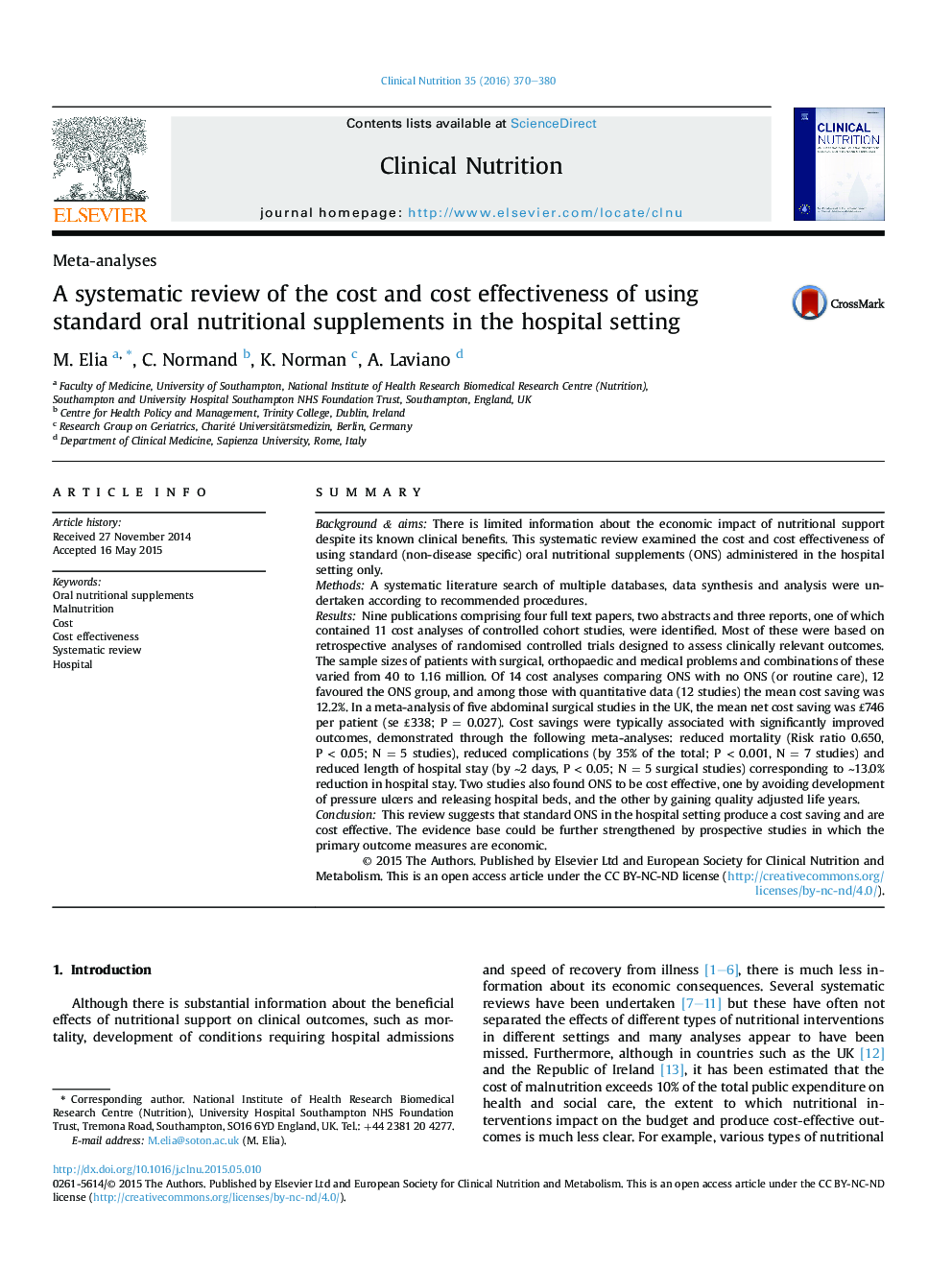| کد مقاله | کد نشریه | سال انتشار | مقاله انگلیسی | نسخه تمام متن |
|---|---|---|---|---|
| 5872211 | 1143071 | 2016 | 11 صفحه PDF | دانلود رایگان |
SummaryBackground & aimsThere is limited information about the economic impact of nutritional support despite its known clinical benefits. This systematic review examined the cost and cost effectiveness of using standard (non-disease specific) oral nutritional supplements (ONS) administered in the hospital setting only.MethodsA systematic literature search of multiple databases, data synthesis and analysis were undertaken according to recommended procedures.ResultsNine publications comprising four full text papers, two abstracts and three reports, one of which contained 11 cost analyses of controlled cohort studies, were identified. Most of these were based on retrospective analyses of randomised controlled trials designed to assess clinically relevant outcomes. The sample sizes of patients with surgical, orthopaedic and medical problems and combinations of these varied from 40 to 1.16 million. Of 14 cost analyses comparing ONS with no ONS (or routine care), 12 favoured the ONS group, and among those with quantitative data (12 studies) the mean cost saving was 12.2%. In a meta-analysis of five abdominal surgical studies in the UK, the mean net cost saving was £746 per patient (se £338; P = 0.027). Cost savings were typically associated with significantly improved outcomes, demonstrated through the following meta-analyses: reduced mortality (Risk ratio 0.650, P < 0.05; N = 5 studies), reduced complications (by 35% of the total; P < 0.001, N = 7 studies) and reduced length of hospital stay (by ∼2 days, P < 0.05; N = 5 surgical studies) corresponding to ∼13.0% reduction in hospital stay. Two studies also found ONS to be cost effective, one by avoiding development of pressure ulcers and releasing hospital beds, and the other by gaining quality adjusted life years.ConclusionThis review suggests that standard ONS in the hospital setting produce a cost saving and are cost effective. The evidence base could be further strengthened by prospective studies in which the primary outcome measures are economic.
Journal: Clinical Nutrition - Volume 35, Issue 2, April 2016, Pages 370–380
